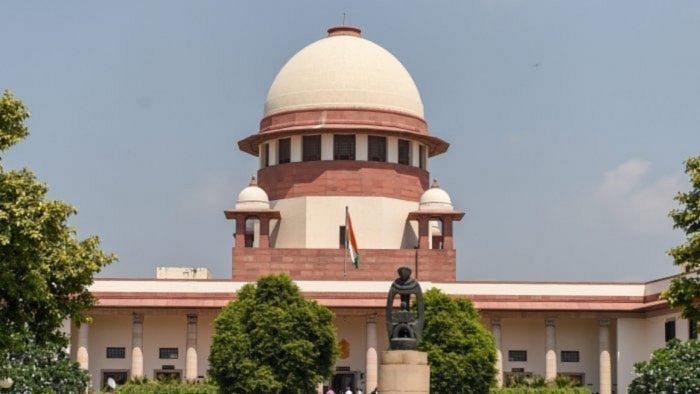
Supreme Court of India.
Credit: PTI Photo
The Supreme Court on Friday said in Bihar, most people would be aware of the caste of their neighbours, which is not the case in Delhi.
A bench of Justices Sanjiv Khanna and S V N Bhatti made the oral remarks while dealing with a question whether the caste survey undertaken by the Bihar government violated the right to privacy.
The top court also clarified that it would not stay the survey or publication of data unless prima facie case was made out as the exercise was already completed.
Senior advocate CS Vaidyanathan, representing 'Youth for Equality', contended that people cannot be compelled to disclose such personal details. "How can anyone be compelled to disclose their religion, gender? The question is can somebody be compelled to give these details without a law," he asked.
"We are talking about the right of privacy being invaded and there is no law which has been made by the state to enable them to invade this privacy," he contended.
The counsel said that when fundamental rights are being affected it cannot be through an executive notification, it has to be a statute law and that is the view taken by the apex court in a constitution bench judgement in the K S Puttaswamy case, which held that individuals have a fundamental right to privacy.
The bench, however, said, “What way is right to privacy is affected? Caste or the sub-caste are being asked but that data is not released it is retained. What is released is the cumulative figures”.
Referring to a list of 17 items which are sought to be asked, the counsel asked, "How can somebody compel to give this information?"
On this, Justice Khanna said, “Your caste is known to your neighbours….in Bihar…unfortunately, it is true….In Delhi, we don’t know, I will be very frank”.
Vaidyanathan said how somebody can be compelled to disclose religion, gender, caste, monthly income etc and the only voluntary thing is Aadhaar and everything else is mandatory.
"Can somebody be asked to give all these details without a law," the counsel asked again.
The top court said it would not stay the publication of the caste survey results unless a prima facie case is made out by the appellants. Noting that there is a judgement in favour of the state government, the bench said, “We are not going to stay anything unless there is a prima facie case... the exercise has already been completed".
The court posted the matter for further hearing on August 21.
The matter arose out of the challenge to the judgement of the Patna High Court which had on August 1 approved the Bihar government's decision of June 6, 2022 to conduct a caste census in the state. The HC had said the exercise was perfectly valid, and (is) initiated with due competence, with the legitimate aim of providing ‘development with justice’; as proclaimed in the address to both Houses.
The pleas before the top court claimed the entire exercise was without authority, and legislative competence and reeked of mala fide. The petitioners said in terms of constitutional mandate, only the Union Government is empowered to conduct census.
